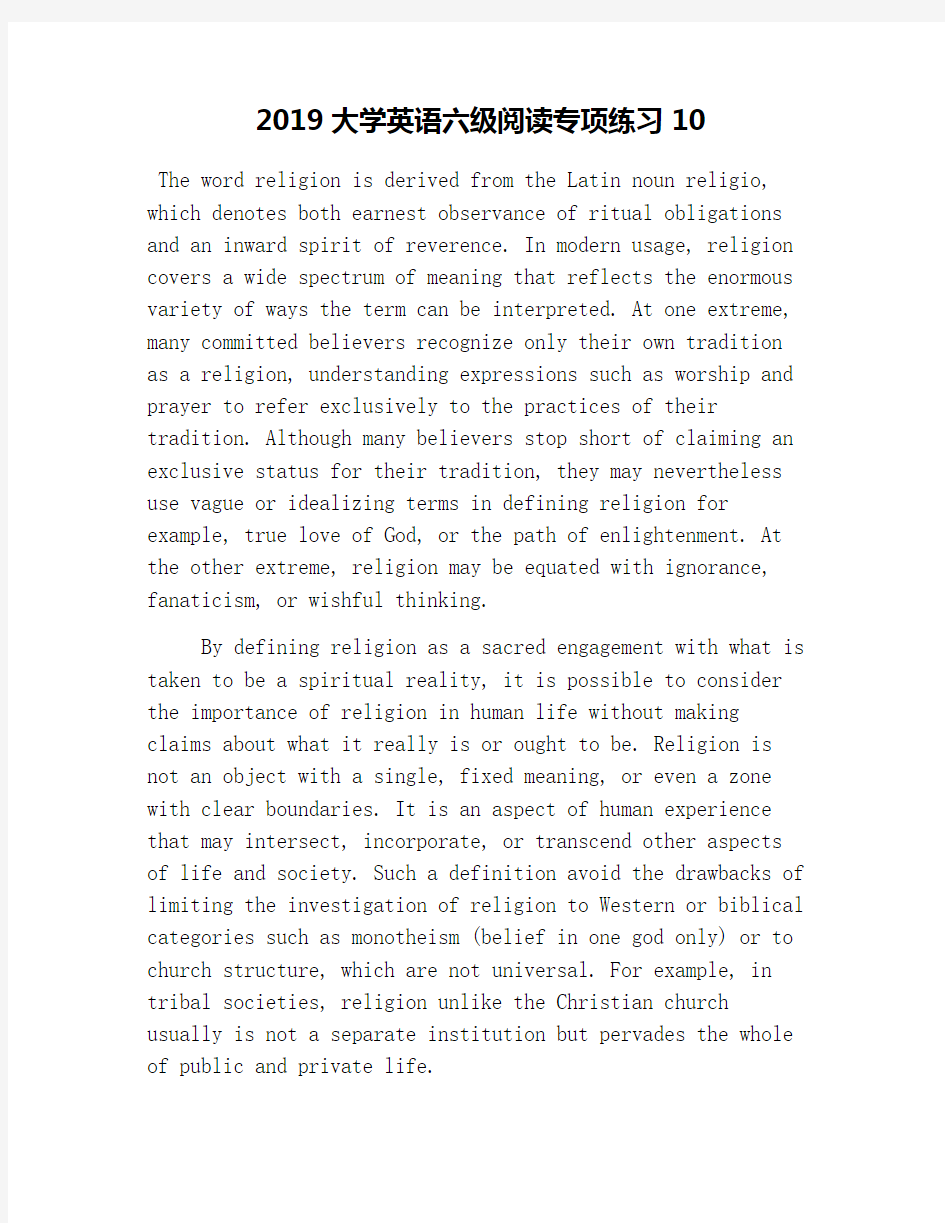
2019大学英语六级阅读专项练习10
- 格式:docx
- 大小:38.16 KB
- 文档页数:4


2019大学英语六级阅读专项练习10
The word religion is derived from the Latin noun religio, which denotes both earnest observance of ritual obligations and an inward spirit of reverence. In modern usage, religion covers a wide spectrum of meaning that reflects the enormous variety of ways the term can be interpreted. At one extreme, many committed believers recognize only their own tradition as a religion, understanding expressions such as worship and prayer to refer exclusively to the practices of their tradition. Although many believers stop short of claiming an exclusive status for their tradition, they may nevertheless use vague or idealizing terms in defining religion for example, true love of God, or the path of enlightenment. At the other extreme, religion may be equated with ignorance, fanaticism, or wishful thinking.
By defining religion as a sacred engagement with what is taken to be a spiritual reality, it is possible to consider the importance of religion in human life without making claims about what it really is or ought to be. Religion is not an object with a single, fixed meaning, or even a zone with clear boundaries. It is an aspect of human experience that may intersect, incorporate, or transcend other aspects of life and society. Such a definition avoid the drawbacks of limiting the investigation of religion to Western or biblical categories such as monotheism (belief in one god only) or to church structure, which are not universal. For example, in tribal societies, religion unlike the Christian church usually is not a separate institution but pervades the whole of public and private life.
In Buddhism, gods are not as central as the idea of a Buddha. In many traditional cultures, the idea of a sacred cosmic order is the most prominent religious belief. Because of this variety, some scholars prefer to use a general term such as the sacred to designate the common foundation of religious life.
Religion in this understanding includes a complex of activities that cannot be reduced to any single aspect of human experience. It is a part of individual life but also of group dynamics. Religion includes patterns of behavior but also patterns of language and thought. It is sometimes a highly organized institution that sets itself apart from a culture, and it is sometimes an integral part of a culture. Religious experience may be expressed in visual symbols, dance and performance, elaborate philosophical systems, legendary and imaginative stories, formal ceremonies, and detailed rules of ethical conduct and law. Each of these elements assumes innumerable cultural forms. In some ways there are as many forms of religious expression as there are human cultural environments.
1. What is the passage mainly concerned about?
A. Religion has a variety of interpretation.
B. Religion is a reflection of ignorance.
C. Religion is not only confined to the Christian categories.
D. Religion includes all kinds of activities.